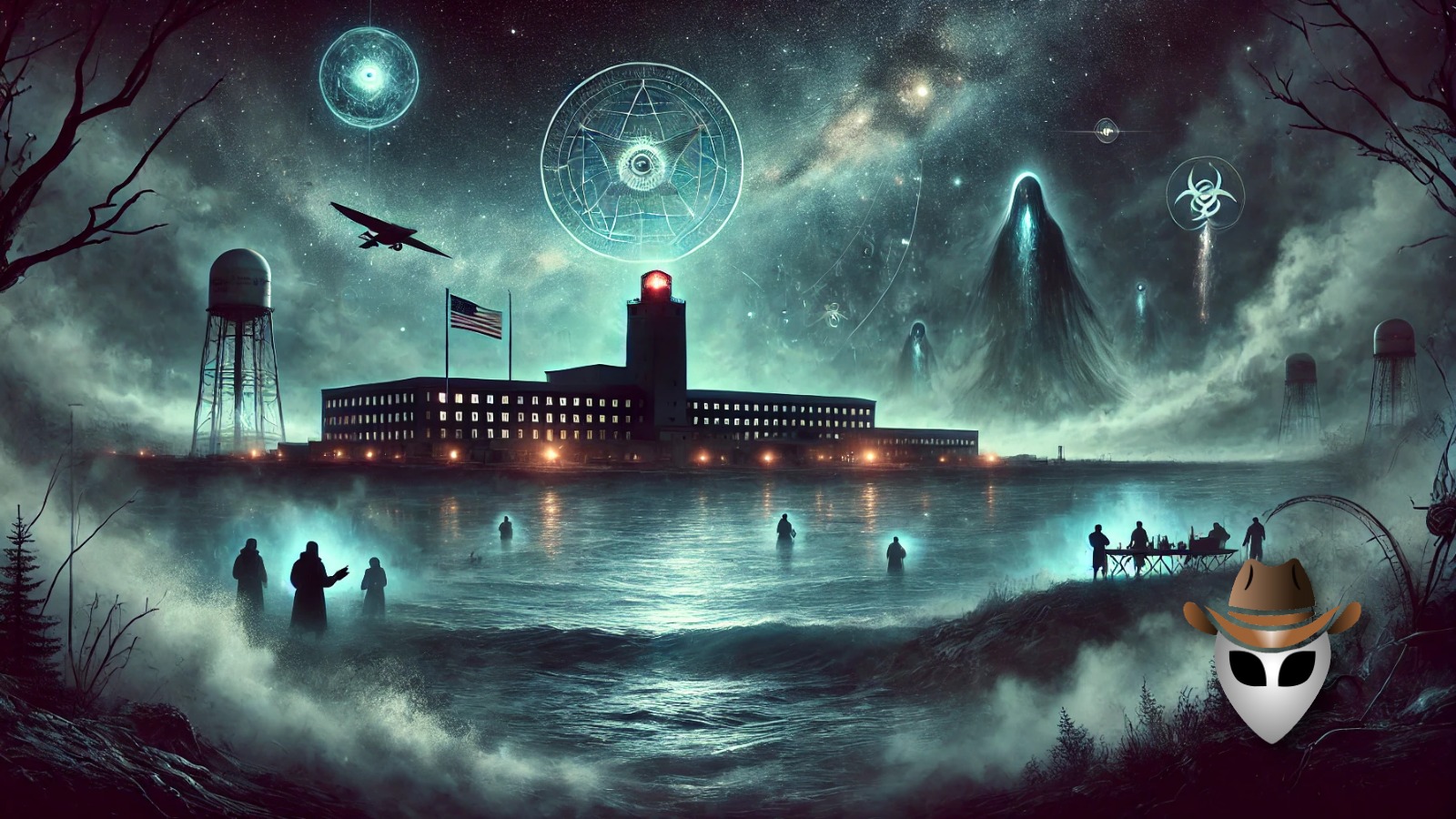The Montauk Project is a name that evokes intrigue and speculation, often associated with conspiracy theories about government experiments involving time travel, mind control, and extraterrestrial technology. Nestled in the heart of Montauk, New York, the project is said to have taken place at the Montauk Air Force Station, a facility that has long been shrouded in mystery and speculation.
The Montauk Project is believed to have emerged in the late 1970s and early 1980s, drawing inspiration from earlier projects like the Philadelphia Experiment. According to proponents of the theory, the U.S. government conducted a series of clandestine experiments aimed at developing advanced technologies for military and psychological purposes. Some of the most famous allegations surrounding the Montauk Project include the development of time travel capabilities, mind control techniques, and the potential involvement of extraterrestrial beings.
The narrative surrounding the Montauk Project was popularized by a series of books authored by Preston Nichols and Peter Moon, notably The Montauk Project: Experiments in Time. In these writings, Nichols claimed to be a former researcher involved in the project and presented various accounts of experiments conducted at the Montauk facility, including teleportation, mind control, and even contact with extraterrestrial life.
Evidence in Favor of the Montauk Project
Eyewitness Accounts: One of the primary sources of evidence supporting the Montauk Project comes from individuals who claim to have been directly involved or who have witnessed unusual activities at the Montauk Air Force Station. These eyewitnesses, including former military personnel and researchers, provide testimonies of strange occurrences, such as unexplained lights in the sky and unusual experiments.
Government Secrecy: Proponents of the Montauk Project argue that the U.S. government has a long history of secrecy regarding military and scientific experiments. The Cold War era, characterized by heightened paranoia and government cover-ups, lends credibility to the idea that clandestine projects could have been conducted without public knowledge. The existence of other controversial programs, such as MK-Ultra (a CIA project involving mind control), adds weight to the argument that similar experiments might have occurred at Montauk.
Technological Advancements: Supporters point to the rapid advancements in technology and military capabilities in the decades following the alleged Montauk experiments. They argue that these developments could be linked to the successful experimentation with advanced technologies during the project, such as teleportation and mind control.
Evidence Against the Montauk Project
Lack of Concrete Evidence: One of the most significant criticisms of the Montauk Project narrative is the absence of verifiable evidence to support the outlandish claims. Many skeptics argue that the stories surrounding the project rely heavily on anecdotal evidence and personal testimonies, which are often difficult to corroborate. Without tangible proof, such as documents or credible witnesses, the claims remain speculative at best.
Psychological Factors: Some researchers suggest that the allure of the Montauk Project stems from psychological phenomena such as false memory syndrome or the influence of conspiracy theories. In an age of widespread mistrust in government institutions, individuals may be more susceptible to believing in extraordinary narratives that align with their fears and suspicions. The power of suggestion and the tendency for people to create elaborate stories can lead to the development of a collective belief in the Montauk Project without substantial evidence.
Debunking by Experts: Various experts in psychology, sociology, and military history have scrutinized the claims surrounding the Montauk Project. Many have labeled the theories as pseudoscientific, arguing that they lack rigorous methodology and empirical support. The scientific community generally regards the idea of time travel, as presented in the Montauk narrative, as speculative and unsupported by established physics.
The Montauk Project has captured the imagination of many, becoming a cultural phenomenon that extends beyond mere conspiracy theory. It has influenced popular culture, inspiring television shows like Stranger Things, which draws on themes of government experiments, supernatural phenomena, and the interplay between reality and fiction.
While there are compelling anecdotes and stories surrounding the Montauk Project, a critical examination reveals significant gaps in evidence and a reliance on conjecture. Whether one views the Montauk Project as a legitimate chapter in the annals of government experimentation or a cautionary tale of conspiracy thinking, its legacy continues to provoke discussions about the nature of truth, the limits of human understanding, and the eternal quest for knowledge.
In the end, the Montauk Project serves as a reminder of the fine line between reality and imagination, urging us to question not only what we know but also what we choose to believe. As we navigate a world rife with both genuine scientific advancements and unfounded conspiracy theories, the Montauk Project will likely remain a topic of debate and speculation for years to come.
Share Your Thoughts on the Montauk Project!
What do you think? Is the Montauk Project the real deal, or just another hoax? Share your thoughts in the comments below!
